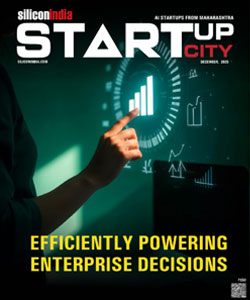IT Service Delivery Model and How to get it Right
By Emmanuel Christi Das, Editor, siliconindia | Thursday, 18 November 2021, 18:57 IST

To accelerate digital transformation, modern organizations are adopting new technologies. In a recent interaction with Emmanuel Christi Das, Editor, Siliconindia, Satrajit Bhattacharya, IT head of Future Group India, explained how IT has historically been seen as something that's in the industry's wheelhouse.
Developing in-house IT capabilities can be a costly venture, especially when the IT needs of an organization are constantly changing. What does it mean for a retail business?
IT processes are the engine that powers the mechanics in today’s omnichannel supply chain retailing operations – buying and merchandising, product information management, allocation and replenishment, fulfilment and delivery. So, as more is asked of retailers, naturally they should expect more of their IT department. But is the in-house team fit for purpose scalable with business growth has always been controversial decision making pointers for CIO CTOs.
Many retailers outsource to manage key functions such as a Help Desk for store-based and office-based staff, a Data Centre environment where hardware and systems are hosted by a third-party, the development of new technology, and project management of new IT infrastructures and systems.
IT has historically been seen as something that's in the industry's wheelhouse, but as the digital transformation has taken hold over the last few years, a growing number of retailers are beginning to rethink the role of in-house IT. These teams have had to wrap their heads around how to effectively harness an endless stream of emerging technologies.
So, a process hardened hybrid model which lower dedicated costly in-house resources to those areas where a well selected expert can offer a consistent service with focussed and skilled resources, and an expert governance cell with in depth understanding of retail business andadroit partner drive may be scalable for organisations to flex and grow to offering more cost-effectiveness by sharing the service across a number of retailers
What are the major factors that must be considered by a business looking to reinvent its IT service delivery model?
To accelerate digital transformation, modern organizations are adopting new technologies like cloud, mobile and analytics. Adopting these technologies is resulting in a diverse and complex hybrid IT environment. As a result, organizations of all sizes are examining their strategies to see whether the IT services they design and deliver in-house can be more valuable, efficient and effective when provided by a managed services vendor. Managed services span a range of capabilities, creating options for IT organizations looking to benefit from externally provided services that allow them to focus on more business-critical issues and strategic functions and activities. The potential benefits of managed services can be achieved by selecting the right provider, one that can demonstrate the ability to provide skills and experience. A partnerhaving adroit technology driven approach aligned with ITIL framework. When it comes to opt for a right service management team, ithas to hold astrong consolidated service visibility with support of multivendor strong relationship.Global delivery capabilities offer many advantages, including rapid implementation in new locations, the ability to effectively manage customer projects that span operations in multiple countries, but local foothold will be equally relevant.
Another key aspect will be performance based SLA management who that can be easily aligned to your business model. & of course Financial stability and reputation that exceed your in-house capabilities.
When it comes to opting for the right IT service delivery model, which is the right option for a retailer – staff augmentation or managed services, and why?
Staff augmentation has always been in the armory of IT department. Even in a managed services model, staff augmentation is often utilized for selected services at specific points in time. However, when staff augmentation becomes the de facto operating model for an IT organization, it constitutes an ineffective form of outsourcing that involves high cost, low commitment and high risk.
In managed services model, the provider is committed to deliver an “outcome” at a defined price versus an “input” as under the staff augmentation model.
Linked to managed services is a service commitment. Under the staff augmentation model, the only service commitment is hours of work. Under the managed services (outsourcing) model, the provider assumes all of the risk of meeting the service commitment.
The value creation is huge. As the provider assumes the delivery risk at a fixed cost, the provider is highly incentivized to establish productivity measures required to meet the service commitment. This manifests itself in the implementation of tools and processes.
Service level agreement is another integral object of service management in which the service partner gets liable to deliver as per organisational norms.
So for a retailer staff augmentation may be tool for specific temporary change or projects but IT lifeline will always be stable service delivery model.
Read More News :
Evolving warehouse operations in Asia Pacific
Imaging Industry Witnesses a Massive Transformation, its Imperative to Evolve as per Customer Needs





